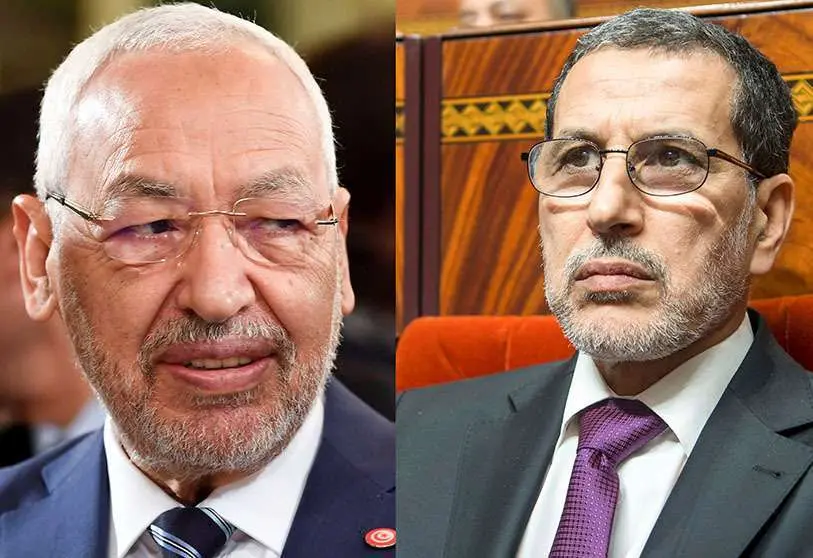Political Islamism in the Maghreb is left orphaned

Reformist Islamist parties in the Maghreb region are beginning to feel orphaned after their main mentors surprisingly distanced themselves from them.
The two government movements, the Justice and Development Party (PJD) in Morocco and Ennahda in Tunisia, as well as Al-Bina and the Movement of Society for Peace associated with power in Algeria (Al-Bina's Sliman Chenine was elected president of parliament in 2019, and the MSP's Abderrazak Mokri stands as the standard-bearer for Algeria's military support for the Polisario Front), find themselves stranded after the estrangement of their Turkish and Qatari godfathers.
Neither the Moroccan head of government Saad Eddine El Othmani, nor the Tunisian leader Rached Ghannouchi, nor the Algerian Islamists were unaware of the phone call that the Emir of Qatar, Tamim bin Hamad al-Thani, made to the Egyptian President Abdel Fattah al-Sisi to congratulate him on the arrival of the month of Ramadan. Qatar has been for the past decade the main logistical and financial backer of Arab political Islamism, particularly in the Maghreb; and Marshal al-Sisi, the main executioner of the Muslim Brotherhood current, who did not hesitate to overthrow in 2013 the Islamist president Mohamed Morsi, whom he sent to prison where he died six years later. Al-Sisi led a military coup and bloodily crushed Egyptian Islamism.
Amir Tamim's turnaround, in an attempt to move closer to his counterparts in the Gulf Monarchies, is seen as a real political seismic shift, which will have short-term consequences on the Arab-Muslim geopolitical chessboard. The Al-Jazeera television network, a masterpiece in the media support of more or less radical Islamist movements, has jealously hidden its Islamophile charms, and is winking with complicity at the Egyptian authorities.
The beginning of the orphanhood of Maghreb Islamism has also been accelerated by the Turkish regime's change of political orientation. A couple of weeks ago Recep Tayyip Erdogan's government reached out to Marshal Al-Sisi's regime. Ankara has ordered its Islamist-owned television channels, such as Asharq and Mekameleen, to suspend their criticism of the Egyptian regime and to disengage from the Muslim Brotherhood, to which the ruling AKP party itself belongs.
Following the logic of Turkey's Copernican turn, Erdogan has facilitated the agreement reached in Libya for the formation of a new government headed by the "liberal and independent Islamist" Abdel Hamid Dbeiba, at the expense of the Islamist PJC party and the Islamist National Front, until now his protégés and allies.
According to all analysts, this diplomatic earthquake will marginalise political Islamism. The international crisis generated by the COVID pandemic has put the economy at the forefront, at the expense of ideology. Political Islamism will no longer occupy the prominent place it has held until now.



